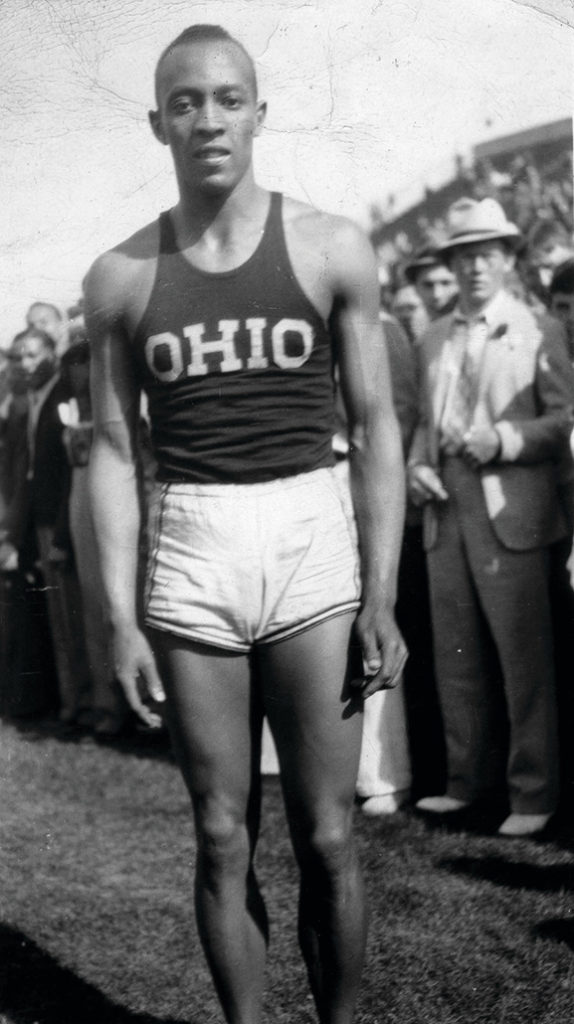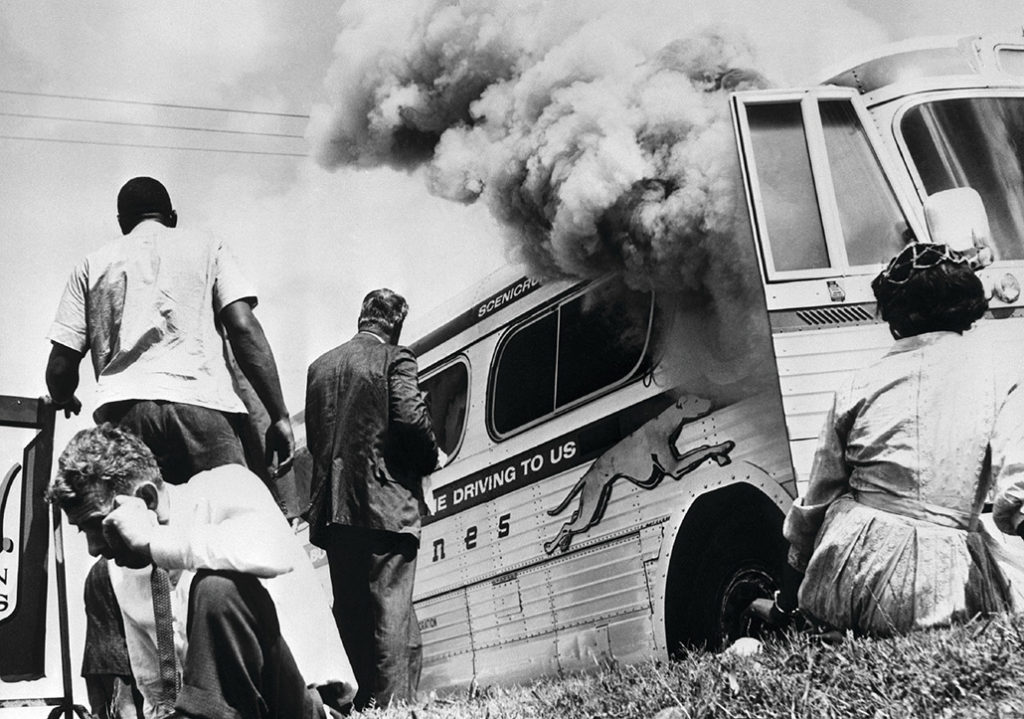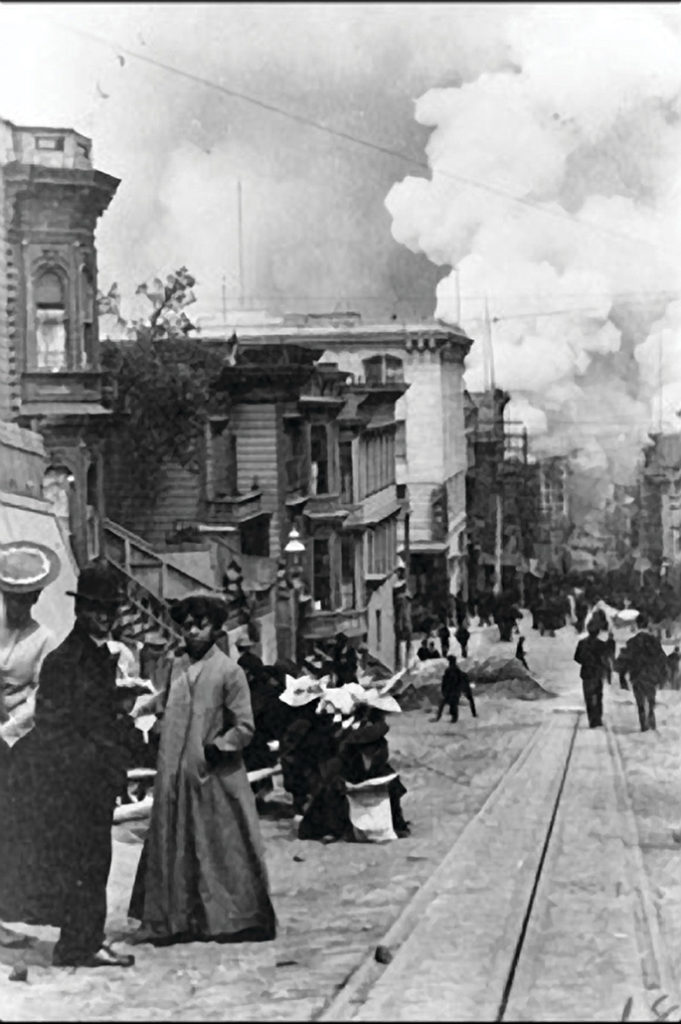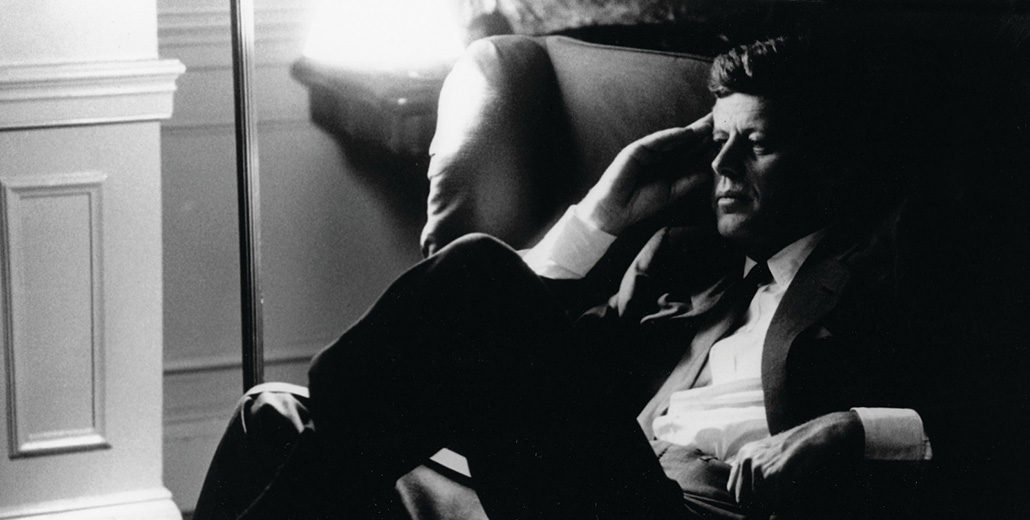by Kevin Lewis
Twenty-five years ago, the Public Broadcasting System (PBS) transformed the marketing, distribution and arguably the concept of documentaries when it premiered the weekly anthology series The American Experience in October 1988. The debut program was The Great San Francisco Earthquake, directed by Tom Weidlinger, and its success caused veritable seismic waves throughout the television medium. A quarter of a century later, the renamed American Experience (minus the definitive article) series is still one of the most vital and provocative programs on television.
What was so novel about this concept? Previously, documentaries were broadcast on a special event basis, first on commercial network television in the 1950s and ‘60s with such pioneering productions as CBS Reports (particularly Harvest of Shame, 1960), David L. Wolper Productions (notably The Making of the President, 1963) and Drew Associates programs on ABC-TV (on, among other shows, ABC Scope). When NET (National Education Television), the predecessor to PBS, was created in 1963, the only documentaries broadcast were usually from the Museum of Modern Art film library.
In the 1970s and ‘80s, PBS, which was formed from NET in 1970, produced landmark multi-part documentaries such as The Ascent of Man (1973), America (1972-73), the docudrama The Adams Chronicles (1976), Vietnam: A Television History (1983) and Eyes on the Prize (1987). Plans were made years before by the PBS producers of these multi-part programs — specifically WGBH in Boston and the show’s creator, Peter McGhee — for a weekly documentary series, which became The American Experience.

Jesse Owens, Ohio State University Archives
Some documentaries were produced by WNET in New York and KCET in Los Angeles. Also, it was announced that PBS was looking for submissions from independent filmmakers. PBS wanted to create a backlog of films for a season. Among the early films was Coney Island (1991), a film by Ric Burns, who was leaving his brother Ken Burns’ production company to strike out on his own. Ric Burns is still a regular contributor to American Experience. The Donner Party (1992), The Way West (1995) and New York (1999) are some of the standout productions in the series.
Because it was a regularly scheduled series shown in primetime (with repeats at off-peak times), The American Experience gained a regular, loyal audience. Americans are often accused of being indifferent to history, but this series created a consciousness among educated viewers about the country’s heritage. In the next few years, cable television produced offshoots of The American Experience like The History Channel.
The American Experience had a unique style and zeitgeist. The stories were never pat interpretations of historical figures and events, nor did they shy away from the chronicles of lost causes, defeats, rough compromises and violence. Mark Samels, who is executive producer and has served in various producing and creative capacities on the series since its inception — and before that was a producer of such documentaries as Eyes on the Prize — believes that the series has never lost its freshness or audience appeal, because of “the diversity of storytelling” in its various programs, which have ranged from a chronicle of the rise of Tupperware to the Presidential series. Samels says he is intrigued by the constant movement of American life and culture, which shifts backwards, forwards and sideways.
The Presidential documentaries in particular underscore this perpetual motion. The script and images in a show deliberately veer away from any partisan philosophy and show how two immutable forces constantly clash. If one political party wins a battle, the other side works tirelessly to undo that victory. The writing in these films, coupled with the imagery used to underscore the narration, shows exactly why American politics is always moving one step forward and two steps back, defeating any progress in our society. A viewer can easily interpret how we reached our present legislative stalemate from these documentaries.
The Presidential series, which are three- or four-hour-long episodes, include Nixon (1990), directed by David Espar; LBJ (1991), directed by David Grubin, Elizabeth Deane and Marilyn H. Mellowes; George Washington: The Man Who Wouldn’t Be King(1992), directed by David Sutherland; The Kennedys (1992), directed by Phillip Whitehead and Marilyn H. Mellowes; Eisenhower (1993), directed by Adrianna Bosch and Austin Hoyt; FDR (1994), directed by David Grubin; Reagan (1998), directed by Adriana Bosch and Austin Hoyt; and John and Abigail Adams (2006), directed by Peter Jones.

Freedom Riders, Corbis
To celebrate the 50th anniversary of the death of John F. Kennedy, JFK, a new four-hour documentary directed by Susan Bellows, will be broadcast this November. “With our Presidential biographies, we strive for a better understanding of the men who have held the office,” Samels explains. “While we’re interested in the decisions they made, we also want to know why they made them — what in their lives led to a particular worldview? What shaped these men and how did those factors in turn shape our country?”
In his producing career, Samels is especially proud of the multi-part The Abolitionists (2013), directed by Rob Rapley, which can be regarded as the prequel to Eyes on the Prize. Eyes itself was withheld from rebroadcasting for many years because of rights problems, but is now a part of the American Experience library with expanded productions.
In addition to those series on African-American history, American Experience has broadcast acclaimed documentaries on Martin Luther King (Citizen King, 2004), directed by Orlando Bagwell and W. Noland Walker, and Jesse Owens (Jesse Owens, 2012), directed by Laurens Grant and written by Stanley Nelson. Nelson has produced several of these documentaries on African-American history, including Marcus Garvey: Look For Me in the Whirlwind (2001) and The Murder of Emmett Till (2003). One of the earliest shows was Kennedy vs. Wallace: A Crisis Up Close (1988) by Drew Associates’ Robert Drew.

The Great San Francisco Earthquake, Library of Congress
On a lighter note, American Experience is celebrating the 75th anniversary this October of one of the most famous broadcasting stunts of all time — Orson Welles’ Halloween 1938 radio broadcast of H.G. Wells’ novel The War of the Worlds — with an eponymous documentary by Cathleen O’Connell. Welles and his Mercury Theatre adapted the novel about the invasion of the United States by Martians as if it were a real CBS radio broadcast, a mock-documentary concept. Panic ensued and it is still remembered to this day, but mostly as a comic event.
“In an era when the public can still be fooled or misled by what is read online, in print, or seen on TV, The War of the Worlds is a timely reminder of the power of mass media,” comments Samels. But The American Experience was never about deluding the public or about television as a passive experience. It is interactive and encourages its audience to delve deeply into the subject with reminders on the screen to visit its website. Since its website was created in 1995, over 100 American Experience programs are now available on the Internet with additional footage and background information: www.pbs.org/wgbh/americanexperience.
American Experience, after all, is our experience with American life.


